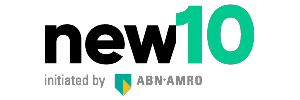Startup Business Loans
Startup Business Loan Netherlands
Compare the best startup loans in the Netherlands
No revenue history required by some lenders
From €1,000 to €50,000+ in funding

Recommended

Amount
€ 5000 – 250.000
Term
6-36 months
Interest rate
Varies
Verified Company
Non-committal application
Apply in 5 minutes
Example: Loan amount €40,000. Loan term 24 months. Interest rate 1.3% per month. Weekly payment €504.62. Total repayment €52,480. Repayment per week €504.62. Fixed interest 0.5% + premium surcharge 0.8%.

Amount
€ 5000 – 500.000
Term
3-24 months
Interest rate
1.0-2.3%
Verified Company
Fully English Site
In your account within 24 hours
Costs are based on your company’s risk profile. The one-time closing costs of 2% (minimum €650) are not included.

Amount
€ 1000 – 500.000
Term
1-18 months
Interest rate
Individual
Verified Company
Apply in 1 min
Payment within 24 hours

Amount
€ 1000 – 50.000
Term
1-36 months
Interest rate
2,4 %
Verified Company
5-star reviews
Quote same day
Example: Loan amount €19,000. Loan term 26 months. Interest rate 2.2%. Monthly payment €967.38. Interest & costs €236.61. Repayment per month €730.77. Total repayment €25,151.95.

Amount
€ 20.000 – 1.000.000
Term
3-60 months
Interest rate
3.8-12%
Verified Company
Customized offer within 15 minutes
Payment within 24 hours

Amount
€ 5.000 – 500.000
Term
12-60 months
Interest rate
3,0 %
Verified Company
Apply in 1 min
Payment within 24 hours
Example: Loan amount €200,000. Loan term 36 months. Interest rate 3.0%. Monthly payment €8,414.25. Interest & costs €2,500.00. Repayment per month €5,914.25. Total repayment €302,912.95.
A startup business loan in the Netherlands can help turn your idea into reality—without waiting for revenue or outside investors. We show you where to apply, what lenders expect, and how to get approved as a new business.
What Is a Startup Business Loan?
A startup business loan is a type of financing aimed at new businesses in the early stages, often before any revenue is generated. Unlike traditional business loans, which require turnover or collateral, startup loans are based on your business plan, growth potential, and financial forecasts.
In the Netherlands, these loans help cover essential startup costs such as product development, equipment, marketing, or first hires. Typical loan amounts range from €1,000 to €50,000, though larger sums may be available through state-backed programs. Approval is based on projected cash flow and market viability rather than past performance.
We’ve collected a list of the best startup business loans in the Netherlands at the top of this page, so you can quickly compare options and find one that fits your stage and goals.
Can Startups Get a Loan Without Revenue?
Yes—startups in the Netherlands can get a business loan without revenue, but it requires a different approach. Since there’s no financial history to assess, lenders focus on your business plan, market research, and cash flow projections to evaluate potential.
You’ll need to clearly show how the funds will be used, when revenue is expected, and how you plan to repay the loan. Some lenders may request a personal guarantee, while others offer government-supported loans that reduce the need for collateral. While the loan amounts are often smaller and the risk assessment stricter, pre-revenue startup loans are possible—especially for entrepreneurs who are well-prepared and can demonstrate a realistic growth path.
To improve your chances without revenue:
- Write a detailed, data-backed business plan
- Include realistic income and cost projections
- Specify how loan funds will generate future revenue
- Be ready to offer a personal guarantee if required
Best Types of Startup Loans in the Netherlands
Startups in the Netherlands have access to several types of loans, each suited to different needs and stages. Whether you’re launching your first product or need capital to scale operations, the right loan depends on your business model, funding amount, and repayment ability.
| Loan Type | Best For | Amount Range | Secured? | Approval Speed |
|---|---|---|---|---|
| Microloan | Early-stage capital, freelancers | €1,000 – €50,000 | No | Fast (1–3 days) |
| Government-Backed Loan | Startups lacking collateral | Up to €250,000+ | Partial guarantee | Medium (5–10 days) |
| Online Startup Loan | Fast approval, limited paperwork | €2,000 – €100,000 | Usually unsecured | Fast (1–3 days) |
| Equipment Financing | Buying essential startup equipment | €5,000 – €500,000+ | Secured by asset | Medium (3–5 days) |
| Alternative Financing | High-risk or pre-revenue startups | Varies (case-by-case) | Varies | Varies |
Microloan
Ideal for new businesses, freelancers, and founders with limited capital. Microloans offer fast approval, small amounts, and short to medium repayment terms. They require no revenue history, but a clear plan and ID verification are essential.
Government-Backed Loan
For startups without collateral or long trading history, these loans are issued by banks and supported by state guarantees. They reduce risk for lenders and increase access to credit. Approval is slower, but interest rates are often lower than market-based options.
Online Startup Loan
Digital lenders provide unsecured startup loans with minimal paperwork and fast decisions. These are suitable for founders who need speed and flexibility, though they come with higher interest rates and shorter repayment terms.
Equipment Financing
If your startup needs machines, tools, or vehicles, equipment financing lets you borrow against the asset itself. It offers lower interest rates because the equipment acts as collateral. A strong purchase case or supplier quote may be required.
Alternative Financing
Options like crowdfunding, revenue-based loans, or investor-backed credit lines can fill gaps where traditional loans fall short. These work well for high-risk or pre-revenue startups, but may involve equity, higher costs, or strict repayment rules.
Startup Loan Requirements Netherlands
Getting a startup loan in the Netherlands requires preparation—even if you’re not yet generating revenue. Lenders focus less on financial history and more on how well you’ve planned your business and how you intend to use the funds.
At a minimum, you’ll need:
- A valid KvK registration
- A Dutch business bank account
- A detailed business plan with projections
- Valid ID and Dutch address
- In some cases: a personal guarantee or security deposit
Even online lenders and microloan providers want to see that you understand your market, have realistic cost/revenue forecasts, and a clear repayment strategy. If you’re applying under a government guarantee scheme, you may also need to provide additional documentation, such as a cash flow overview or proof of entrepreneurial experience.
Keep in mind: Startup loan approval isn’t based on what you’ve earned—it’s based on how well you can show what you’ll earn.
How to Apply for a Startup Loan
Applying for a startup business loan in the Netherlands takes more than filling out a form. Since most startups lack revenue, your application needs to show strong planning, clear financial logic, and a solid understanding of how the funds will be used.
Steps to apply for a startup loan (keyword-focused):
- Choose the best startup loan Netherlands
- Prepare documents for startup loan application
- Write a clear business plan with financial forecasts
- Compare startup financing options
- Apply for a startup loan online or via lender
Choose the Best Startup Loan Netherlands
Start by identifying the loan type that fits your business. Microloans are great for small capital needs, while government-backed loans offer larger amounts with better terms if you qualify. Fast online loans can bridge urgent gaps, but usually have higher rates.
Prepare Documents for Startup Loan Application
Gather essential documents to speed up the process:
- KvK registration
- Proof of identity and address
- Bank account details
- Any previous funding history
- Optional: proof of relevant experience or partnerships
Some lenders may also request a startup pitch or brief overview of your team and vision.
Write a Clear Business Plan with Financial Forecasts
This is the most critical part of the process. Your business plan should include:
- Description of your product or service
- Market overview and positioning
- Sales and cost forecasts (6–24 months)
- Marketing and operational plans
- Loan usage and repayment plan
Keep it realistic and data-backed. Lenders want to see how the loan will help generate income.
Compare Startup Financing Options
Don’t go with the first lender you find. Compare:
- Loan amounts and interest rates
- Repayment flexibility
- Fees and penalties
- Approval time and support
Make sure the loan structure fits your cash flow and risk profile.
Apply for a Startup Loan Online or via Lender
Once you’re ready, submit your application with supporting documents. Online lenders may approve you in 1–3 days. Government-backed options and banks typically take longer—up to 10 business days or more.
Tip for Approval: Avoid vague projections. Show exactly how the borrowed money turns into revenue—and when. Lenders back plans, not hopes.
Pros and Cons of Startup Financing
Startup loans can be a powerful tool—but they’re not without risks. Understanding the pros and cons helps you make a smarter decision before taking on debt early in your business journey.
Pros:
- Access to early capital – Launch your business without waiting for revenue or investors.
- Keep full ownership – Unlike equity funding, you don’t give up control.
- Predictable repayments – Fixed terms and clear structure make budgeting easier.
- Multiple options – Microloans, government guarantees, and online lenders offer flexibility.
- Build credit history – Successful repayment strengthens your business profile.
Cons:
- Higher interest rates – Especially for unsecured or fast-access startup loans.
- Limited loan amounts – Most startup loans are capped at €50,000 to €100,000.
- Personal liability – Many lenders require a personal guarantee from the founder.
- Strict planning required – Approval depends heavily on the quality of your business plan.
- Cash flow pressure – Repayments start before your business is fully stable.
Used well, startup financing can accelerate your growth. Used carelessly, it can burden your cash flow and limit flexibility. Always ensure the expected return outweighs the repayment cost.
Interest on Business Startup Loans
Interest rates on startup loans in the Netherlands vary depending on the loan type, risk profile, and lender. Because startups often lack collateral and revenue history, they usually pay higher interest than established businesses. However, government-backed programs and microloans can offer more favorable terms if you meet the criteria.
Below is an overview of typical interest ranges and cost factors
| Loan Type | Interest Rate (Typical) | Rate Type | Secured? | Other Cost Factors |
|---|---|---|---|---|
| Microloan | 6% – 9.75% | Fixed | No | Low admin fees, early repayment possible |
| Government-backed loan | 2% – 7% | Fixed or variable | Partially guaranteed | May include one-time processing fee |
| Online startup loan | 7% – 15% | Fixed | Usually unsecured | Higher rates for fast approval |
| Equipment financing | 4% – 8% | Fixed | Secured by asset | May include insurance or valuation cost |
| Alternative financing | Varies widely (8% – 20%+) | Varies | Varies | Can include equity or revenue share |
Fixed rates provide stability—ideal for startups managing tight budgets. Variable rates may be lower initially but carry uncertainty. Always calculate the APR (annual percentage rate) to see the true cost, including fees.
If you’re applying without revenue or collateral, expect to land in the higher range. Lenders price risk—and startups are high risk by default. Improving your business plan, financial projections, and personal credit can help reduce the rate offered.
FAQ
Startup Business Loans Netherlands
Yes. Many lenders offer loans based on your business plan and projections. You’ll need a strong case for how the loan will generate future income.
Startup loans typically range from €1,000 to €50,000, though some government-backed programs go higher. The exact amount depends on your plan, risk profile, and loan type.
Interest rates vary between 6% and 15%, depending on whether the loan is secured, guaranteed, or from an online lender. Government-supported loans usually offer the lowest rates.
Not always. Many startup loans are unsecured, but some lenders may request a personal guarantee or require partial security if risk is high.
Yes. Freelancers and ZZP’ers with a valid KvK registration can apply for microloans or unsecured online startup loans, even with limited financial history.
Online applications can be approved in 1–3 days, while government-backed or bank loans may take 5–10 business days, depending on documentation.
Yes. A clear, detailed business plan with financial forecasts, market analysis, and loan usage breakdown is essential for approval—especially if you have no revenue.
Possibly. Some businesses combine a microloan with equipment financing or use a credit line alongside a term loan. Just make sure total repayments are sustainable.
